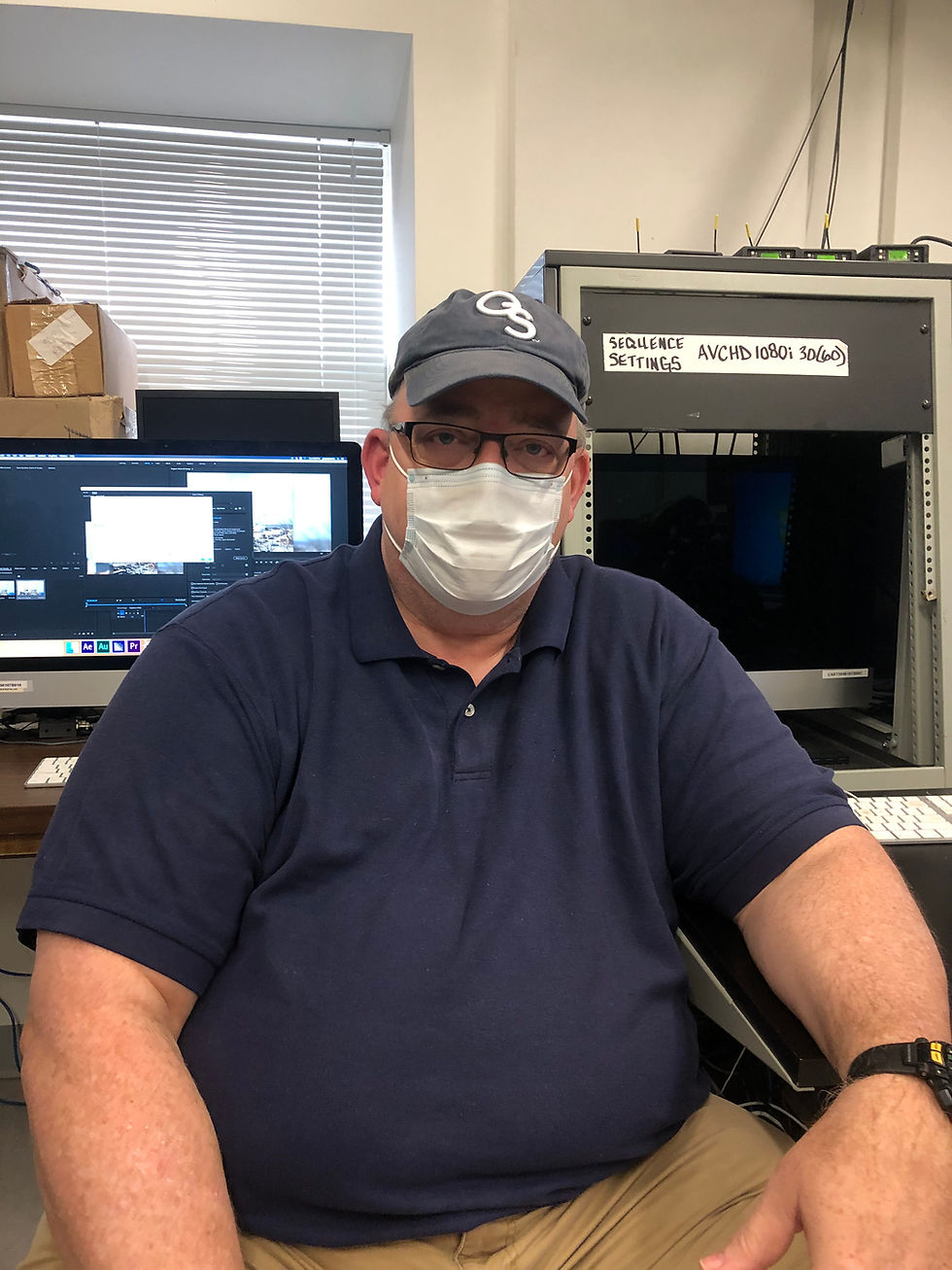By Zoe Boylan

Joel Boyter has been a professor in the communication arts department for 13 years at Georgia Southern University and has seen the way the industry has changed over the years.
Boyter grew up in upstate South Carolina and got his master’s at the University of South Carolina. While getting his master’s, he started his teaching career.
“You eventually get to a point in your career where you want to give something back,” said Boyter. “You realize that you really have something hopefully to offer to help people get over the bumps that you had.”
He wants to help others and get them through the trials and tribulations that he had. He feels that with his experience he can help others with his past experiences and see them succeed.
There have been many different classes Boyter has taught at GS ranging from public speaking, journalism and currently film and studio production. He enjoys teaching this skill because it's always changing and people have to adapt. He described it as “riding a roller coaster as it is being built.”
There have been changes through the years with students he has taught. Students are now more tech savvy and can catch on to him teaching the software easier than before. He said that it was easier to teach teamwork in the 2000’s than software.
Boyter has always been interested in movies and television. He remembers as a kid pretending to be in a TV show with his friends and neighbors, which pushed him into the field first working on feature films and music videos.
He then started to work for the military and film combat. He has worked in film and news production. He has a lot of experience and is able to share those experiences with his students. He liked working in the media because it always gave him a new challenge.
Tyson Davis, a professor at GS, also in the communication department has been friends with Joel Boyter since he started working at GS.
“We call ourselves former roommates,” said Davis. “The building we were in didn’t have enough office space so when he got here he and I had to share an office for like three or four years.”
Davis says it was helpful to have someone else there to help with students and give other advice. They both were new at GS and related to another with both being new to the job. Tyson Davis started 2 years prior to Boyter and taught in other departments. In 2008 they both started to work in film and production and built their friendship. They worked in the same office till 2014 when Sanford Hall became the new communication arts building.
COVID-19 has had its effect on the classroom, but Boyter has taken that to his advantage and has worked with students more closely.
“Students have bigger problems now,” said Boyter.
He acknowledges that students are dealing with their families possibly being sick with COVID or them being sick with COVID. He has added to his teaching the opportunity to be tested every time you walk into class.
He has had the opportunity to work with a smaller group of students in his classes. The number of students in his classes went from 24 to just around eight. This gave him the opportunity to work closer with his students when otherwise he might not have the time to.
“He’s very hands on which I liked because that’s my learning style.” said Mattie Skilman, a former student who had COVID while she was in Boyter’s class. “He did influence me when I had him during COVID and when I was sick and he was very understanding and worked after hours with me to catch me up.”
There have been some advantages to teaching in times of COVID. Boyter says that with teaching smaller crews and working in the studio reflects where the industry is going. Film and studio production is an adaptable job. He says the equipment now can do a lot more with less people. Boyter knows all of the equipment just as much as the engineer does downstairs. He is vital in the technical side of studio production.
“He is doing something that is highly technical,” said Davis. “That select people really know how to do really well.”
.png)
Comments